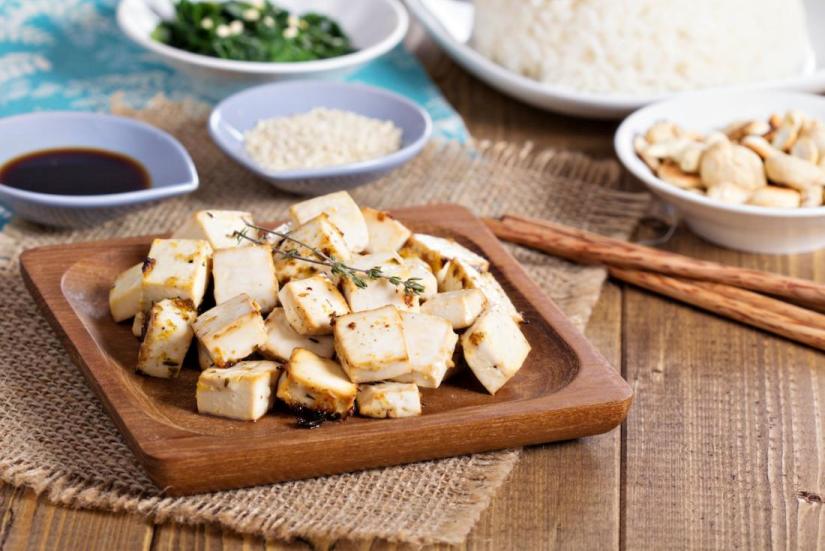By Laura Kubitz
March 8 is International Women’s Day. To commemorate this important day, we pulled our favorite post that celebrate women. Explore how women are being mindful of the unique nutritional needs at any age.
What Every Woman Should Know About Food and Their Health
Women’s needs are unique and, too often, they fall to the bottom of the priority lists. A healthy lifestyle doesn’t have to be hard work, so resolve to learn a few tips that can improve your health and fitness at any age.

20’s
Whether you’re working on your first real job, making new friends, or dating, life is hectic and may leave healthful hobbies on the backburner. Try to incorporate these quick tips into your hectic schedule to keep your body moving strong during your busy schedule.
Nutrition tips:
Protein. It can be easy to fall short on protein with a busy life! Protein is important for building your muscles and will keep you feeling full throughout the day. Look for protein from a variety of sources including lean meat, chicken, fish, eggs, beans, dairy, and soy foods.
Fiber. Fiber helps reduce bloating and fight off hunger by leaving you feeling full longer. Fiber is also very beneficial for colon and digestive health. Some foods that are high in fiber are whole grain bread, oatmeal, fruits, and vegetables.
Omega-3 fats. Omega-3 fats improve cognitive and heart health. These beneficial fats also normalize and regulate your cholesterol and triglycerides. Salmon, tuna, walnuts, and flaxseeds are all great sources of omega-3s!
Fitness tip:
Try joining a co-ed or intermural sports team! This is a great way to catch up with old friends or meet new friends. Sports are a great way to let out some stress, with the added bonus of burning calories.

30’s
Thought your life would slow down once you reached your 30’s? Now, you are juggling more responsibility at work and may be taking care of kids. Healthful eating and fitness can easily fall off your to-do list, even though your metabolism may be slowing down a bit. That’s okay, we have some quick simple healthy tips for you.
Nutrition tips:
Whole grain. Whole grains supply a great source of fiber, B vitamins and can help with weight management. Foods high in whole grain include popcorn, brown rice, oatmeal and wild rice.
Folate. If you decide to have children, folate is crucial for a healthy pregnancy and prevents neural tube defects. Folate helps your body make new healthy cells and has been seen to reduce the risk of cardiovascular disease. Foods with folate include chickpeas, asparagus, spinach, broccoli, enriched grain products, and avocados.
Vitamin C. If you are spending time with kids or traveling a lot, you may need extra immunity boosts to ward off the sniffles. Benefits of vitamin C include protection against immune system deficiencies, cardiovascular disease and prenatal diseases. Citrus fruits, bell peppers, kale, broccoli and strawberries all have high levels of Vitamin C.
Fitness tip:
Try getting active with friends and family of all ages. This could include playing a family soccer or kickball game in the backyard, dancing, or taking a jog with your little one in a stroller. Make fitness fun.

40’s
Feel like you made it over the hill? More like time to try a new hill on your running route! Life after 40 doesn’t seem to be slowing, yet you are seeing more changes in your metabolism and energy levels. That is perfectly normal, and we have some nutrition and exercise tips to keep you feeling your best.
Nutrition tips:
Calcium. As you approach menopause, estrogen and calcium absorption start to decline, which can decrease bone strength. Increasing calcium intake will ensure your bones stay healthy and strong. Consume low-fat dairy products like yogurt or beverages with added calcium.
Vitamin D. Vitamin D goes hand-in-hand with calcium; it actually helps your body absorb calcium. Vitamin D also improves your immune system and helps protect against breast and colon cancer. Foods high in Vitamin D include tuna, salmon, egg yolks, and low-fat milk. Getting a little sunshine also helps your body as well.
Flavonoids. Flavonoids are antioxidants, which keep your immune system strong to fight off disease. They also keep your cardiovascular and nervous systems healthy! Foods high in flavonoids include berries, chocolate (yes, really!), and red and yellow fruits and vegetables.
Fitness tip:
Try something new, such as a new group class like yoga, Pilates or Zumba!

50’s
At this point, you might be getting a renewed chance to focus on your health and well-being! Try incorporating these nutrition and fitness tips into your everyday life.
Nutrition tips:
B12. B12 is a vitamin that keeps your nerves and red blood cells healthy and may help reduce depression and stress. Low-fat milk, lean red meat, and eggs all have high levels of B12.
Soy. According to studies, soy may decrease menopausal symptoms like hot flashes and night sweats. Experts also believe soy also has antioxidant properties to fight off cardiovascular disease. Items containing soy include soy milk, soy nuts, edamame, and soy sauce.
Probiotics. Probiotics are live bacteria and yeast that are beneficial for your digestive system. They are responsible for keeping your gut healthy by lowering the number of “bad” bacteria in your system. Foods containing probiotics include berries, yogurt, sauerkraut, and pickles.
Fitness tip:
Grab a partner! Partner with a friend, spouse, or family member to keep physical activity in your schedule. Making an “appointment for health” will keep you motivated and on-track.

60’s and beyond
Feeling 60 years young? It is never too late to begin participating in activities that can increase your health and well-being. You may be feeling some fatigue, so this makes it a perfect time to improve your nutrition and fitness.
Nutrition tips:
Protein. Progressive decline of muscle occurs over time, so try to consume protein each day. Foods with protein include lean meat, peanut butter, nuts, eggs, and beans
Water. Staying hydrated is important to stay energized. Drinking water also energizes muscles and hydrates skin. Aim for 6-8 cups of water per day.
Fiber. Fiber can help aid in colon health. Fiber can also help control blood sugar levels. Foods high in fiber include beans, broccoli, cabbage, leafy greens, and whole wheat bread.

Fitness tip:
Make your fitness fun. Low-impact swim classes, yoga, Pilates, walking groups, and group fitness classes allow you to socialize with members before and after class.
Incorporating healthy measures into your lifestyle can be beneficial at any age! It is important to figure out what works best for you and follow through. Improving your nutrition and fitness can greatly impact you health to achieve a long and healthy life!
The information contained in this article is for educational and informational purposes only and is not intended as health or medical advice. Always consult a physician or other qualified health provider regarding any questions you may have about a medical condition or health objectives.





